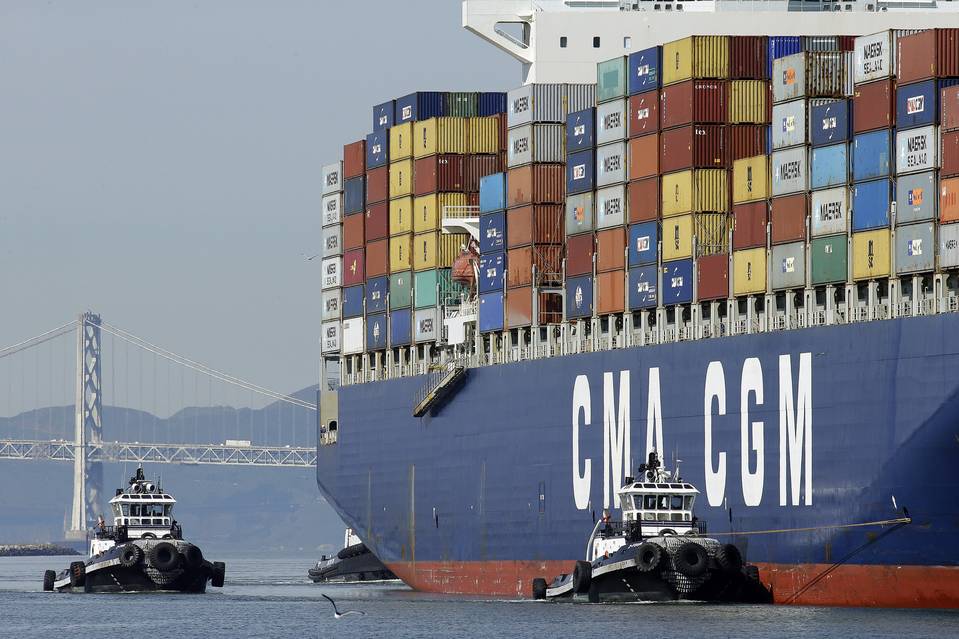- NEXIM Bank Earmarks N5bn for Non-oil Export Projects in N’Delta
The Minister of Finance, Mrs. Kemi Adeosun has inaugurated the Board of Directors of the Nigerian Export-Import Bank (NEXIM).
In line with the Nigerian Export-Import Bank Act 38 of 1991, the new board has Deputy Governor, Economic Policy, Central Bank of Nigeria (CBN), Dr. Joseph Okwu Nnanna as its chairman.
This follows the constitution of the governing boards of government agencies by President Muhammadu Buhari.
Other directors of the development finance institution include Dr. Mudashiru Olaitan, Mrs. Olubunmi Siyanbola, Mr. Ochapa Ogenyi, (Hon) Adesina Adegbenro, and Hajiya Ramatu Ahmed. The newly appointed directors join the executive management team of the bank headed by the Managing Director/Chief Executive, Mr. Abba Bello, who is ably assisted by Bala Bello, Executive Director, Corporate services and Stella Okotete, Executive Director, Business Development.
However, Nnanna, brings to bear his rich experience as an economist and banker over the last three decades, during which he has been involved in policy formulation and development of financial markets. Having joined the Central Bank of Nigeria in 1994, he rose to become the Director, Research & Statistics in 2001 and was appointed Deputy Governor in 2015. In-between his career at the CBN, he held several positions and was the Director General of the West African Monetary Institute (WAMI) from 2006-2008. He also served as a Staff Economist & Desk Officer in the African Department of the International Monetary Fund (IMF) and was a Consultant to the United Nations Conference on Trade & Development (UNCTAD).
Meanwhile, the Executive Director, Business Development, NEXIM Bank, Mrs. Stella Okotete has hinted that a seed fund of N5billion has been earmarked to promote export oriented projects and support for the Niger-Delta region.
She said a Niger-Delta Development Fund had been established in partnership with the Niger-Delta Development Commission in that regard.
Okotete said the bank had also offered partnership opportunities to cocoa projects and other commodity exporters in Ondo State to promote value added exports and called on exporters in in the state to take advantage of this Fund as well, being the only Niger-Delta State in the South West.
Speaking when she led a team of senior management of the Bank on a two-day tour of projects in the state, she recalled that Cocoa was a leading non-oil export commodity from the country whereby Ondo was a major Cocoa producing area.
Okotete said it goes without saying that it should seek partnership opportunities in the state to enhance value addition and increase non-oil export revenues.
Furthermore, she noted that currently the country exports predominantly raw cocoa beans, while at the same time spending much more than its revenue to import chocolates and other finished products, adding that the Bank was eager to reverse the trend and in the process enhance jobs and increase export revenues.
During an interactive session with exporters and members of the orgnaised private sector, the Executive Director informed the audience that the Bank is now receiving applications under the N500 billion Export Stimulation Facility (ESF), which it is implementing with the Central Bank of Nigeria (CBN) and that the Fund has been created to provide long term facilities to exporters at single digit interest rate.
She also said out of the N50billion Export Development Fund (EDF), at least N1billion has been earmarked for each state of the federation for the purpose of supporting the Small and Medium Enterprises (SMEs), operating along the export value chain.
She added that about N3 billion has also been set aside under a special scheme designed for women and youth.
A statement by the NEXIM’s Head, Strategy & Communications, Tayo Omidiji said that the team had earlier paid a courtesy visit to the State Governor, Arakunrin Rotimi Akeredolu, during which the Bank expressed the desire to support the revitalisation of ailing projects with strong market potentials.

 Billionaire Watch3 weeks ago
Billionaire Watch3 weeks ago
 Startups4 weeks ago
Startups4 weeks ago
 News4 weeks ago
News4 weeks ago
 News4 weeks ago
News4 weeks ago
 Bitcoin4 weeks ago
Bitcoin4 weeks ago
 Naira4 weeks ago
Naira4 weeks ago
 Forex3 weeks ago
Forex3 weeks ago
 Treasury Bills4 weeks ago
Treasury Bills4 weeks ago

























